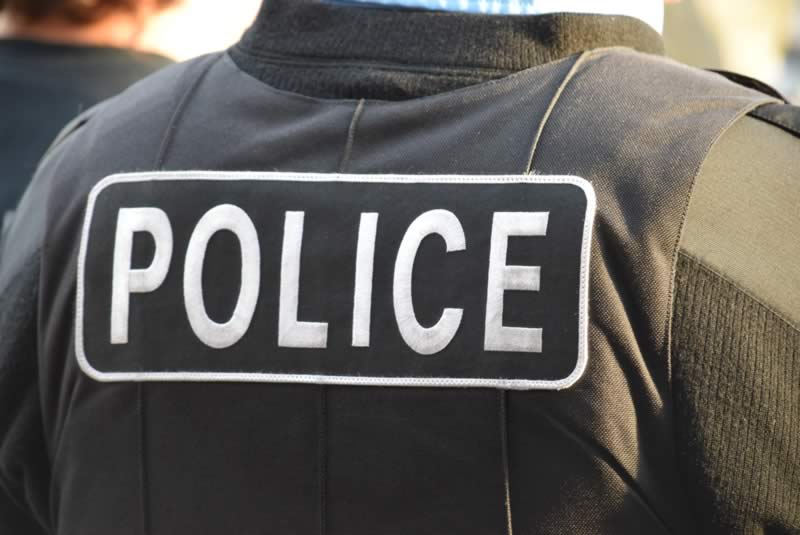
All 800,000 Loans Will Be Independently Audited, Companies Will Pay at Least $21.6 Million and Stop Suing for Invalid or Unverified Debts
Washington, D.C. –(ENEWSPF)—September 18, 2017. The Consumer Financial Protection Bureau (CFPB) today took action against the National Collegiate Student Loan Trusts and their debt collector, Transworld Systems, Inc., for illegal student loan debt collection lawsuits. Consumers were sued for private student loan debt that the companies couldn’t prove was owed or was too old to sue over. These lawsuits relied on the filing of false or misleading legal documents. The proposed judgment requires an independent audit of all 800,000 student loans in the National Collegiate Student Loan Trusts’ portfolio. It prohibits the National Collegiate Student Loan Trusts, and any company they hire, from attempting to collect, reporting negative credit information, or filing lawsuits on any loan the audit shows is unverified or invalid. In addition, it requires the National Collegiate Student Loan Trusts to pay at least $19.1 million, which includes initial redress to harmed consumers, relinquished funds to the Treasury, and a civil money penalty. Under a separate consent order, Transworld Systems, Inc. is ordered to pay a $2.5 million civil money penalty.
“The National Collegiate Student Loan Trusts and their debt collector sued consumers for student loans they couldn’t prove were owed and filed false and misleading affidavits in courts across the country,” said CFPB Director Richard Cordray. “We’re ordering them to pay at least $21.6 million, stopping them from filing illegal lawsuits, and requiring the trusts to thoroughly audit their loan portfolios to identify any other consumers who were harmed.”
The National Collegiate Student Loan Trusts are 15 Delaware statutory trusts that own more than 800,000 private student loans. Between 2001 and 2007, the trusts purchased and securitized the loans, and then sold notes secured by the loans to investors. The trusts have no employees but instead use service providers to interact with consumers about their loans. Transworld Systems, Inc. is a nationwide debt collector incorporated in California, with a principal place of business in Ft. Washington, Pennsylvania. Transworld Systems employees complete, sign, and notarize sworn legal documents for collections lawsuits brought on behalf of the trusts. Transworld Systems hires a national network of law firms to file and prosecute collections lawsuits on behalf of the trusts in courts across the country.
The complaint against the National Collegiate Student Loan Trusts and the Bureau’s consent order regarding Transworld Systems include allegations and findings that the companies violated the Dodd-Frank Wall Street Reform and Consumer Financial Protection Act by filing false affidavits and for pursuing collections lawsuits they could not have won, if contested. Specifically, the companies:
- Sued consumers for debts the trusts could not prove were owed: In order to sue to collect debts, the person or company filing suit must be able to prove that the consumer owed the debt and that they own the loan that is being collected. The companies participated in illegal litigation practices when suing consumers without the necessary documentation required to sue. Over 2,000 collections lawsuits were filed on behalf of the trusts in violation of consumer financial protection laws that prevent consumers from having to pay debts they do not legally owe. In these lawsuits, the trusts do not have or cannot find the documentation necessary to prove either that they own the loans or that the consumer owed the debt. In some of these cases, the document the consumer signed promising to pay back the loan is missing. Nonetheless, the trusts filed suit against consumers to collect the debts.
- Filed false and misleading affidavits: In many of the collections lawsuits, false and misleading affidavits were filed. To be valid, these affidavits must be signed by a witness with personal knowledge of the consumers’ account records and the debt. In numerous instances, affiants claimed personal knowledge of the student loan debt they did not have.
The Bureau also alleged that the National Collegiate Student Loan Trusts filed at least 486 collections lawsuits after the applicable statute of limitations on the debt collection had expired. Additionally, the complaint alleged that, in numerous instances, many of the affidavits filed were improperly notarized because they were not sworn or signed in the presence of the notary.
Enforcement Action
Under the Dodd-Frank Act, the Bureau has the authority to take action against institutions or individuals engaging in unfair, deceptive, or abusive acts or practices or that otherwise violate federal consumer financial laws. Under the terms of the proposed final judgment and consent order, the Bureau is requiring the companies to:
- Conduct a thorough audit of the 800,000 student loans in its portfolio: The proposed final judgment requires the National Collegiate Student Loan Trusts to hire an independent auditor acceptable to the Bureau to audit their student loan accounts. If the audit identifies any additional student loans for which the trusts lack the documentation needed to prove the consumer owed the debt, the National Collegiate Student Loan Trusts will cease all collections on those loans.
- Pay at least $3.5 million in restitution: Under the proposed final judgment, the National Collegiate Student Loan Trusts is ordered to pay at least $3.5 million in restitution to more than 2,000 harmed consumers who made payments after being sued by the trusts on a loan where documentation was missing or the statute of limitations had expired. Furthermore, under the proposed final judgment, the National Collegiate Student Loan Trusts is required to provide restitution to additional consumers identified through the independent audit. Consumers who believe they were harmed do not need to take any action at this time. If they are eligible for restitution, the company will contact them directly. Consumers who are unsatisfied with the response or have other complaints about these practices can submit a complaint with the Bureau.
- Stop filing collections lawsuits on debt that can no longer legally be sued over: Statutes of limitation limit the amount of time an individual or company can go after someone in court for a debt that is allegedly owed. Under the terms of the proposed final judgment and the consent order, the companies are prohibited from tying consumers up in litigation after the expiration of the applicable statute of limitations.
- Stop attempting to collect, reporting negative credit information, and suing consumers for debt without proper documentation: Under the terms of the proposed final judgment and the consent order, the companies are prohibited not only from suing without documentation, but also from collecting and reporting negative credit information without documentation.
- Stop filing false or improperly notarized legal documents: Under the terms of the proposed final judgment and the consent order, the companies are prohibited from filing false or misleading legal documents and are required to ensure all documents that require notarization are properly notarized.
- Pay $7.8 million in disgorgement: Under the terms of the proposed final judgment, the National Collegiate Student Loan Trusts must relinquish $7.8 million to the U.S. Treasury.
- Pay a $7.8 million civil money penalty: Under the terms of the proposed final judgment, the National Collegiate Student Loan Trusts must pay $7.8 million to the Bureau’s Civil Penalty Fund.
- Pay a $2.5 million civil money penalty: Transworld Systems must pay $2.5 million to the Bureau’s Civil Penalty Fund under the consent order.
The proposed judgment against the National Collegiate Student Loan Trusts has been filed with the U.S. District Court for the District of Delaware, and it is effective only if approved by the presiding judge. The consent order is effective immediately.
A copy of the complaint filed in federal district court against the National Collegiate Student Loan Trusts is available at: http://files.consumerfinance.gov/f/documents/201709_cfpb_national-collegiate-student-loan-trusts_complaint.pdf
A copy of the proposed final judgment filed in federal district court against the National Collegiate Student Loan Trusts is available at: http://files.consumerfinance.gov/f/documents/201709_cfpb_national-collegiate-student-loan-trusts_proposed-consent-judgment.pdf
A copy of the consent order entered today against Transworld Systems, Inc. is available at: http://files.consumerfinance.gov/f/documents/201709_cfpb_transworld-systems_consent-order.pdf
###
The Consumer Financial Protection Bureau is a 21st century agency that helps consumer finance markets work by making rules more effective, by consistently and fairly enforcing those rules, and by empowering consumers to take more control over their economic lives. For more information, visit consumerfinance.gov.
Source: www.consumerfinance.gov








